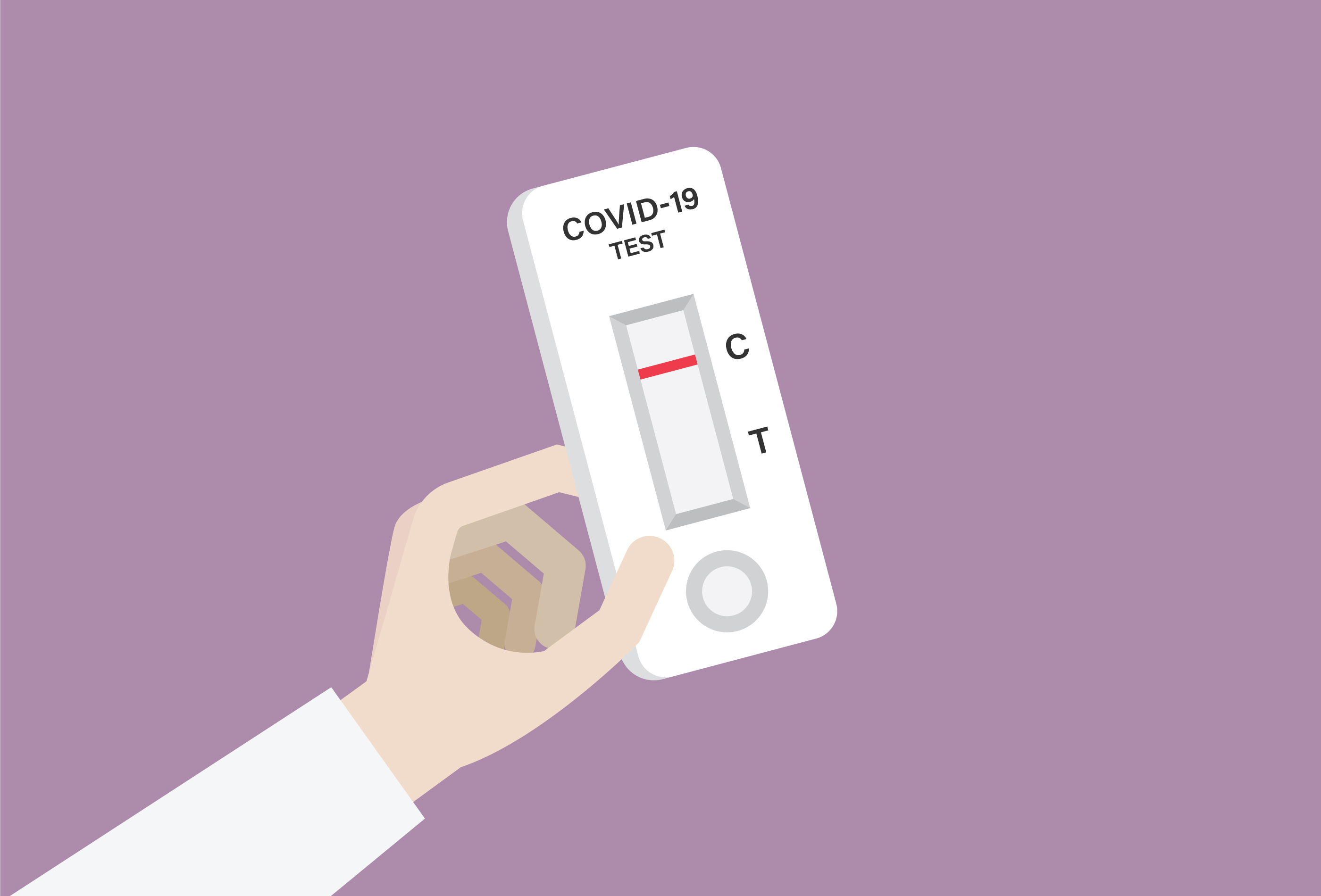Disability Insurance Can Provide COVID Coverage
If you are concerned about long-term complications from COVID-19, consider disability insurance coverage.


Profit and prosper with the best of Kiplinger's advice on investing, taxes, retirement, personal finance and much more. Delivered daily. Enter your email in the box and click Sign Me Up.
You are now subscribed
Your newsletter sign-up was successful
Want to add more newsletters?

Delivered daily
Kiplinger Today
Profit and prosper with the best of Kiplinger's advice on investing, taxes, retirement, personal finance and much more delivered daily. Smart money moves start here.

Sent five days a week
Kiplinger A Step Ahead
Get practical help to make better financial decisions in your everyday life, from spending to savings on top deals.

Delivered daily
Kiplinger Closing Bell
Get today's biggest financial and investing headlines delivered to your inbox every day the U.S. stock market is open.

Sent twice a week
Kiplinger Adviser Intel
Financial pros across the country share best practices and fresh tactics to preserve and grow your wealth.

Delivered weekly
Kiplinger Tax Tips
Trim your federal and state tax bills with practical tax-planning and tax-cutting strategies.

Sent twice a week
Kiplinger Retirement Tips
Your twice-a-week guide to planning and enjoying a financially secure and richly rewarding retirement

Sent bimonthly.
Kiplinger Adviser Angle
Insights for advisers, wealth managers and other financial professionals.

Sent twice a week
Kiplinger Investing Weekly
Your twice-a-week roundup of promising stocks, funds, companies and industries you should consider, ones you should avoid, and why.

Sent weekly for six weeks
Kiplinger Invest for Retirement
Your step-by-step six-part series on how to invest for retirement, from devising a successful strategy to exactly which investments to choose.
Health insurance isn’t the only benefit you need to review during open-enrollment season. Nearly half of large employers expect an increase in disability claims because of complications from COVID-19, or what’s often called long-haul COVID, according to the Business Group on Health.
If you had COVID-19 and are concerned about long-term complications—or you have other long-term health concerns—you may want to consider disability insurance coverage from your employer. If your employer offers a group policy that provides long-term disability insurance, it may pay for the premiums or cover a portion of the cost. In other cases, you’ll be on the hook for the entire premium, but you’ll probably pay less than you’d pay for an individual policy.
Group disability insurance generally pays you up to 60% of your salary in the event that you’re unable to continue working at your job, you can’t switch to a different position, and the disability is expected to last for at least a year. Benefits are considered taxable income.
From just $107.88 $24.99 for Kiplinger Personal Finance
Become a smarter, better informed investor. Subscribe from just $107.88 $24.99, plus get up to 4 Special Issues

Sign up for Kiplinger’s Free Newsletters
Profit and prosper with the best of expert advice on investing, taxes, retirement, personal finance and more - straight to your e-mail.
Profit and prosper with the best of expert advice - straight to your e-mail.
If you don’t have access to a group policy through work (or you think the coverage is not enough), you can buy a policy on your own. Premiums for an individual policy are based on your job, the policy’s definition of disability, the benefit amount, your gender and age, and other coverage details, with the cost typically equaling 1% to 3% of your annual salary.
Some policies, known as own-occupation policies, will provide coverage if you’re unable to work at your specific occupation, even if you can do another job. More-restrictive policies, known as any-occupation policies, will pay out if you aren’t able to work at any occupation. These policies are usually cheaper compared with other options.
To compare policies, go to www.policygenius.com, an insurance-comparison website. Or you can find an independent insurance agent at www.trustedchoice.com. Keep in mind that when you buy an individual policy, you’ll be required to take a medical exam.
Profit and prosper with the best of Kiplinger's advice on investing, taxes, retirement, personal finance and much more. Delivered daily. Enter your email in the box and click Sign Me Up.

Rivan joined Kiplinger on Leap Day 2016 as a reporter for Kiplinger's Personal Finance magazine. A Michigan native, she graduated from the University of Michigan in 2014 and from there freelanced as a local copy editor and proofreader, and served as a research assistant to a local Detroit journalist. Her work has been featured in the Ann Arbor Observer and Sage Business Researcher. She is currently assistant editor, personal finance at The Washington Post.
-
 Dow Absorbs Disruptions, Adds 370 Points: Stock Market Today
Dow Absorbs Disruptions, Adds 370 Points: Stock Market TodayInvestors, traders and speculators will hear from President Donald Trump tonight, and then they'll listen to Nvidia CEO Jensen Huang tomorrow.
-
 Quiz: Do You Know How to Maximize Your Social Security Check?
Quiz: Do You Know How to Maximize Your Social Security Check?Quiz Test your knowledge of Social Security delayed retirement credits with our quick quiz.
-
 Will You Get a Trump Tariff Refund in 2026? What to Know Now
Will You Get a Trump Tariff Refund in 2026? What to Know NowTax Law The Supreme Court's tariff ruling has many wondering about refund rights and how tariff refunds would work.
-
 Five Ways to Save on Vacation Rental Properties
Five Ways to Save on Vacation Rental PropertiesTravel Use these strategies to pay less for an apartment, condo or house when you travel.
-
 How to Avoid Annoying Hotel Fees: Per Person, Parking and More
How to Avoid Annoying Hotel Fees: Per Person, Parking and MoreTravel Here's how to avoid extra charges and make sure you don't get stuck paying for amenities that you don't use.
-
 Gas Prices on the Rise Again: How Drivers Can Save
Gas Prices on the Rise Again: How Drivers Can SaveGas prices on the rise with biggest one-day increase since June 2022. Here's some tips to reduce your pain at the pump.
-
 Free COVID-19 Tests In Time For Holidays
Free COVID-19 Tests In Time For HolidaysFree COVID-19 rapid antigen tests can be delivered directly to your home.
-
 Financial Abuse Is on the Rise: What It Is and What to Do About It
Financial Abuse Is on the Rise: What It Is and What to Do About ItDomestic violence almost always includes financial abuse. Here’s help on identifying and understanding it and how to get help and leave in a safe way.
-
 Your Guide to Open Enrollment 2023
Your Guide to Open Enrollment 2023Employee Benefits Health care costs continue to climb, but subsidies will make some plans more affordable.
-
 Answers to Frequently Asked Social Security Disability Questions
Answers to Frequently Asked Social Security Disability Questionspersonal finance Social Security Disability Insurance is there to help those who can’t work, but getting the benefits you need can be confusing and difficult. Read on for answers to some of the most common SSDI questions.
-
 Despite Cancelled Flights and Short-Staffed Hotels, Americans Are (Sort of) Traveling Again
Despite Cancelled Flights and Short-Staffed Hotels, Americans Are (Sort of) Traveling AgainBusiness Travel Thanks to high gas prices, cancelled flights and labor shortages across the sector, the post-COVID travel recovery looks uneven.